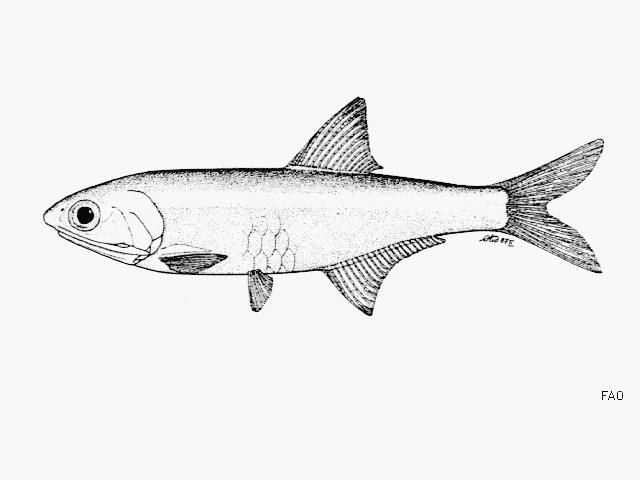| Engraulidae (Anchovies), subfamily: Engraulinae |
| 8.9 cm TL (male/unsexed) |
|
pelagic-neritic; freshwater; brackish; marine; depth range 0 - 50 m |
| Eastern Pacific: central part of the Gulf of California (Rio Yaqui, Mexico) to the Gulf of Guayaquil, Peru. |
|
Dorsal spines (total): 0-0; Anal spines: 0-0; Anal soft rays: 19-23. Body moderately elongate, but somewhat compressed. Snout fairly short, about 3/4 eye diameter; maxilla long, tip sharply pointed, reaching almost to edge of gill cover; gill cover canals of walkeri-type. Anal fin moderate, its origin under or a little before midpoint of dorsal fin base. A narrow silver stripe along flank. |
| Pelagic (Ref. 96339). A schooling species occurring in coastal waters, most often in muddy estuaries in fully salt, brackish or apparently freshwater, penetrating only a few kilometers up rivers. Maturing females were caught in January, August and October in the Gulf of Nicoya, Costa Rica, suggesting a protracted spawning season. The eggs are oval. TL = 1.219 SL. |
|
Least Concern (LC); Date assessed: 30 April 2008 Ref. (130435)
|
| harmless |
Source and more info: www.fishbase.org. For personal, classroom, and other internal use only. Not for publication.
